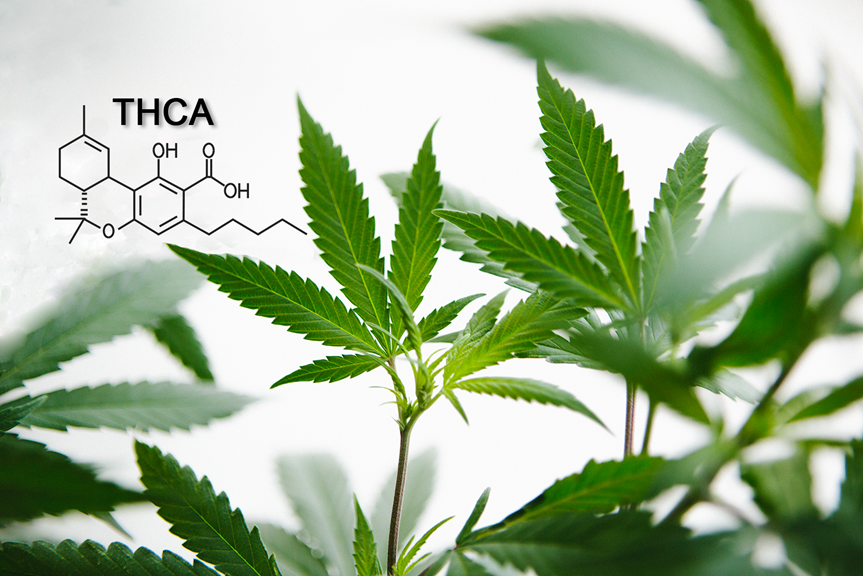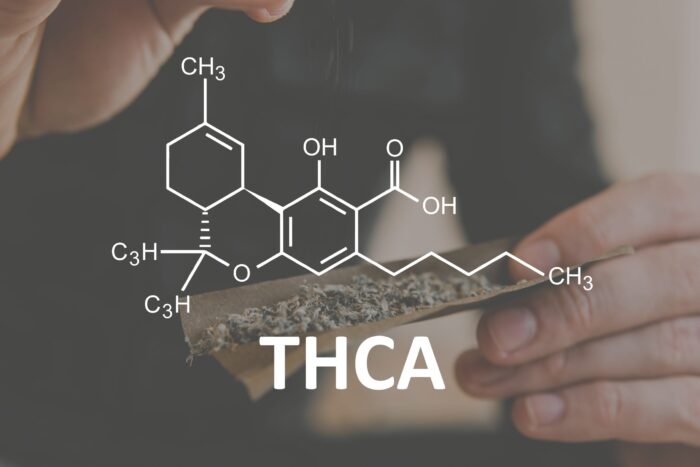
Medical miracles of cannabis and tetrahydrocannabinol (THC) are word of mouth today. However, its wide use and legality is limited owing to its psychotropic activity. Even if the activity is lesser as compared to raw cannabis, it still rings a bell in many minds.
One unsung hero with a non-narcotic nature, Tetrahydrocannabinolic Acid (THCA) remains unexplored. But it’s only a matter of time before this effective solution will see the spotlight and be the centre of attention.
THCA might sound like a secret FBI code, but hang on, that’s not the case. It is simply a precursor to the more famous compound called THC. The THCA UK is creating quite a buzz due to its praiseworthy capability of soothing inflammatory conditions.
This superpower is exactly the core of this article. As we move forward, you’ll discover how THCA can help with certain inflammations like a pro.
Non-Psychoactive Nature of THCA

Before we delve deeper into how THCA works and what conditions it can soothe, let’s get some facts straight about it. ‘THCA won’t get you high.’ Unlike other cannabis products like raw leaves, powdered drugs, THC and more, that have some extent of psychotic activity, THCA is found to be the raw, non-psychoactive cousin of THC.
When exposed to bright sunlight or heat, THCA is converted to THC, and therefore, it is quite unstable. But here’s the dealmaker – THCA doesn’t need to get you high before delivering its therapeutic benefits.
Mechanism of THCA
Alright, We’ll now move on with the most important question – How does THCA actually get into action for its anti-inflammatory magic?
Let’s put your imagination to good use.
Picture an orchestra conductor (the endocannabinoid system (ECS) of your body). When inflammation strikes a discordant note, THCA appears on the podium to interact with the ECS to orchestrate a soothing melody. The melody helps bring down the inflammatory stimulus back to harmony.
To put it in simpler terms, THCA regulates the immune responses by interacting with ECS and brings down inflammation.
Regulation of Inflammatory Conditions

Now that we have a brief idea of how THCA works let’s find out what type of inflammatory conditions it can be used for. Here’s a few to get yourself acquainted with:
Obesity Associated Metabolic Syndrome
Metabolic syndrome involves several elements, among which inflammation plays a significant part. Although the condition itself can’t be ameliorated solely by anti-inflammatory agents, the symptoms can certainly be soothed.
THCA is the precursor of Δ9-THC and is a partial and selective PPARy modulator. Some research results indicate the potential of Δ9-THCA-A as a low adipogenic PPARy agonist that significantly improves the symptoms related to obesity-associated metabolic syndrome and inflammation.
Alzheimer’s Disease

Alzheimer’s disease is an age-related neurodegenerative disease that leads to memory and cognitive deficits. An extensive study focused on the effects of THCA and CBDA on alleviating Alzheimer’s symptoms revealed a significant resolution of the condition.
As both CBDA and THCA can penetrate the Blood Brain Barrier (BBB), they can affect the CNS for the better. Overall, the study resulted in anti-AD effects, mitigation of memory loss and resilience to increased hippocampal Ca2+, Aβ, and p-tau levels. Together, both drug compounds can be useful therapeutic agents to treat Alzheimer’s Disease.
Oxidative Stress
THCA has also proven beneficial for its stress-relieving activity. The anti-oxidative properties help prevent the body from getting harmed by free radicals and oxidative stress conditions. Regulating the symptoms of oxidative stress leads to improved general health and possibly a slow aging process.
Conclusion
Similar to CBD, THCA has a plethora of mental and physical benefits with additional pros. The only limiting factor is a lack of awareness of this heavenly compound.
Researchers are exploring the potential therapeutic effects of THCA. Current studies suggest its potential activity as anti-inflammatory, antiemetic, antioxidant, neuroprotective and slight anti-cancer capabilities.
In the UK, THCA is already taking the tides, and it’s only a matter of time before this miraculous compound will steal the limelight around the whole world.














